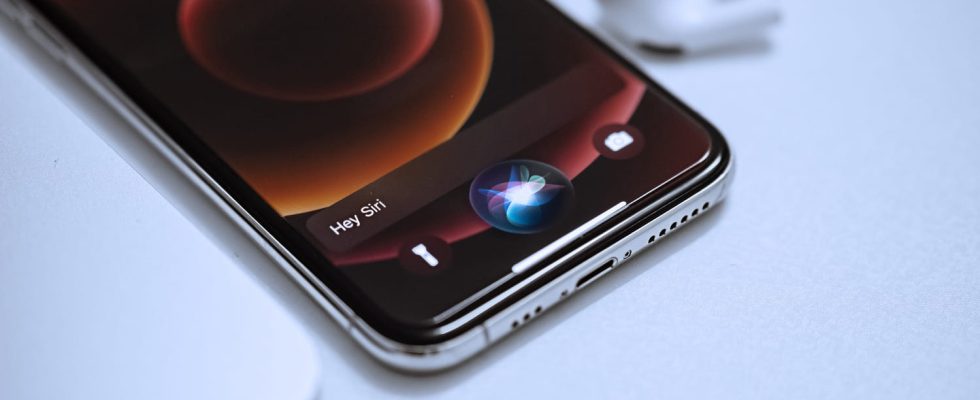Are you constantly being listened to and spied on through your phone? You can legitimately ask yourself this question when you receive an advertisement relating to a subject mentioned during a conversation near your smartphone. Here is the explanation.
You have probably already experienced this type of situation. Quietly seated with a friend, your smartphone within reach, you discuss an exhibition he has just attended. The next day, while consulting your Facebook feed, you come across an advertisement which extols the merits of this exhibition. Yet you are certain: apart from your friend, no one has ever told you about this event, and you have never searched the web about it. How is it possible ? Has Facebook captured your conversation through your phone’s microphone to display targeted advertising to you? Is your smartphone a spy that constantly bugs you?
Is your smartphone listening to you all the time?
Let’s cut the suspense straight away: no, unless you are the victim of ultra-sophisticated malware, your smartphone does not listen to your conversations surreptitiously. The truth, however, is not much more reassuring: the Web giants, Google and Meta in the lead, know you so well that they do not need that to send you perfectly targeted advertisements, to the point that they give the impression of having been spied on!
As early as 2016, following a series of worried press articles, Facebook had already dotted the i’s. By a press release, the firm explained that she did not use the microphone to refine her advertising targeting. In 2018, before the American Congress, Mark Zuckerberg recalled this again, evoking a “conspiracy theory“. Regularly accused, Google has also repeatedly denied listening to its users.
And in this specific case, we can believe them. Firstly because, technically, it is impossible. A few years ago, Antonio Garcia Martinez, an author and former Facebook employee, had fun, for the magazine Wired, to estimate the quantity of data that permanent listening to smartphones would generate, if it were implemented by Meta. With two billion daily users in the world, the transfer of an audio stream of decent quality would represent a volume of approximately 260 petabytes of data, or the equivalent of 260,000 1 TB disks… per day! An unimaginable volume, even for the web giants. Especially since after having collected all this data, it would also be necessary to analyze it, which would generate a colossal cost.
Such mass collection would also have been spotted by computer security experts for a long time, in particular by using network traffic analyses. However, independent researchers who have looked into the question, such as William Budington of the Electronic Frontier Foundation Or the Wandera companydid not find the slightest evidence of this practice.
Beware of voice assistants like Siri, Alexa and Google Assistant
However, there is one moment when your smartphone listens to you: when you activate Google Assistant, Siri or Alexa. Voice assistants which have also largely contributed to the urban legend of this form of espionage, since they are constantly listening for the key word which allows you to wake them up to take your order.
And their use is not without risk for your privacy: as soon as you speak to a voice assistant, your words are recorded, transmitted over the Internet and, sometimes, listened to by a human for analysis purposes. Thomas Le Bonniec, a former expert for an Apple subcontractor, recalled it again recently on France Info : the iPhone manufacturer has long had employees listen to snippets of conversations captured by Siri. Google and Amazon have similar programs, which they say are essential to perfecting their systems. Which is all the more problematic since these assistants are often triggered by mistake, and can thus transmit intimate conversations.
If this makes you uncomfortable, however, it is possible to deactivate them, or cut off access to your device’s microphone. Apple and Google have also integrated into their respective operating systems a notification system which permanently displays an alert as soon as the microphone or camera is activated.
GAFAM follows all your activities
Let’s go back to the beginning of our story: how on earth did Facebook recommend the exhibition your friend went to see? The answer is simple: Meta has so much personal information about you that it is able, without listening to your conversations, to serve you incredibly well-targeted ads. Even anticipate your purchasing desires! Firstly there is the Pixel Meta, a tracker present on millions of Web pages, which allows the company to know a good part of the sites you visit and link them to your profile. Google has even more powerful tools to do this (Google Analytics, DoubleClick, Adsense, etc.)
But Facebook – like Google – also relies on your location, which, if you are not careful, is permanently recorded by its services. Very valuable information that allows the company to know the places you frequent, your favorite stores, your day-to-day habits. It is certainly possible to deactivate this tracking, but even then, Facebook has techniques to “estimate your general location“.
All this allows us to imagine a simple scenario to solve the mystery of this advertisement that appeared on your feed: your friend may have “liked” a publication that mentioned the exhibition, or he was spotted via his smartphone at the place where it took place. Then, when you met again, Meta learned that you were together, again thanks to his location services. Its algorithms then “pushed” the advertising onto your profile, judging that you probably had common tastes. In short, no need to listen to us constantly, far from it. The traces that we continually leave on the Web are enough for the Web giants to track us perfectly.

